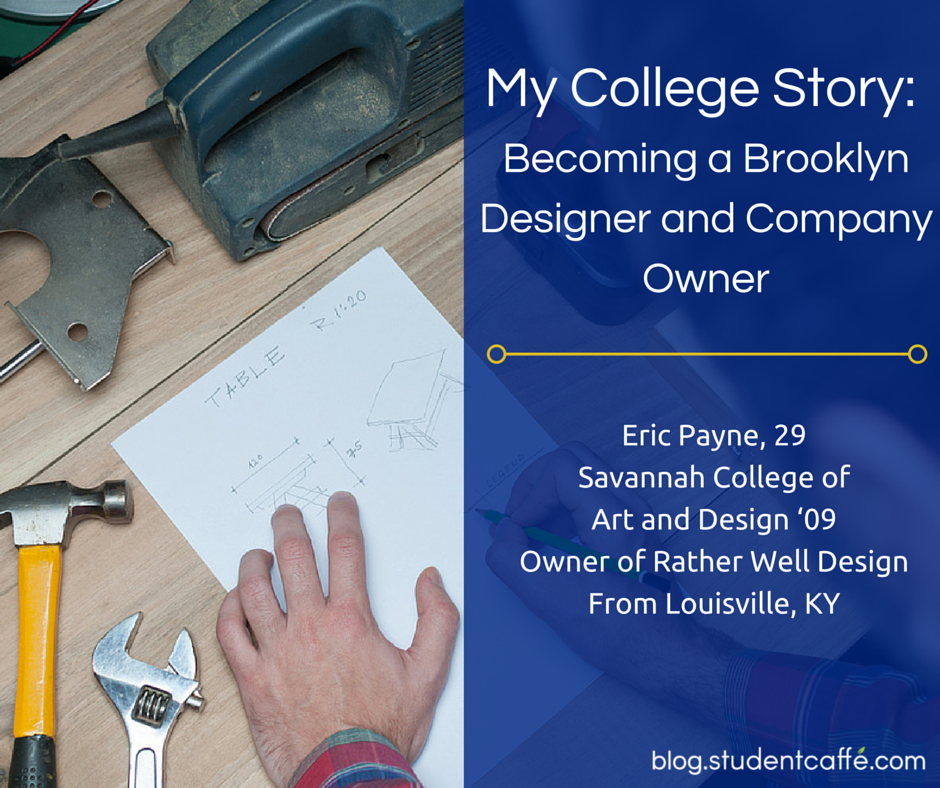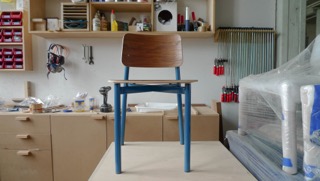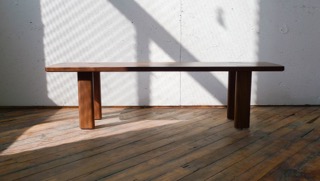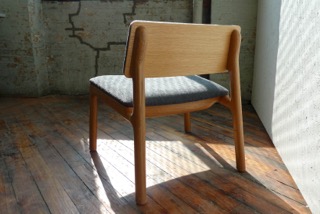
mastermilmar / Shutterstock.com
Eric Payne attended a high school with a strong visual arts program in Louisville, KY. In his junior year AP Studio Art class, he began to develop a portfolio of work under the guidance of his teachers. A portfolio was—and still is—a requirement for admissions consideration at most art and design colleges. Although Eric was preparing to apply for architecture programs, he changed gears when he realized he could pursue furniture design at the Savannah College of Art and Design (SCAD). He graduated from SCAD in 2009 with a BFA degree. Shortly after, he moved to Brooklyn, NY. He is now the owner of the Brooklyn-based furniture company, Rather Well Design.
Q. When did you decide you wanted to go to college for design?

Rather Well Design’s Gladys Chair (Eric Payne)
I didn’t seriously think about college until the beginning of my senior year. I started off looking at architecture schools initially, which is what put SCAD on my radar. I was flipping through its course catalog when I came across furniture design as a major for the first time.
Q. How did you go about your college search?
It was pretty minimal really; there are only a handful of schools that offer a stand-alone BFA in furniture design. I only applied to two schools: SCAD and Herron in Indianapolis. SCAD was my first choice, and fortunately, I got enough scholarship money to make it affordable.
Q. What was the application process like?
My high school hosted a portfolio review every year where representatives from various colleges would come to review students’ work, give feedback, and recruit. I had a really good meeting with the rep from SCAD, and I got accepted there.
Q. What did you include in your portfolio?
My portfolio was pretty eclectic compared to some. Because I didn’t have any design experience at that point, it was mostly a collection of printmaking and photography. Some of the pieces in my portfolio were a year or two old, but the bulk of it was much more recent work.
Q. What was your biggest struggle during college and how did you overcome it?

Rather Well Design’s Laika Bench (Eric Payne)
Definitely time management. By my junior year, I was working full-time while going to school, on top of putting 20-30 hours a week into my studio projects. I forced myself to always try to stay a few steps ahead in my classes in case I had to work last minute or had a deadline for studio. I learned to prioritize certain classes and to accept passing speech and public speaking with a C to make more time for my thesis projects.
Q. What did you do for your thesis project?
My thesis was based around creating a number of furniture pieces that addressed mundane tasks in a quirky or playful way. Over time, this idea grew into some of my favorite projects for my own company.
Q. What is your favorite college memory?
Critique days. Furniture studio classes were focused around spending 10 weeks working on a single design and then building a full-scale prototype. I usually spent the week before the deadline furiously working and not sleeping, so I always felt great (and relieved) when I finished. After I recovered, I had this physical object in front of me that was just an idea 10 weeks prior.
Q. What experience(s) prepared you to run your own business?
Nothing. Seriously. I really tried to gain the experience I thought I would need. I was lucky enough to work for small companies or startups that really allowed me to get my hands dirty in all aspects of running a company. Still, nothing really prepares you for everything being your responsibility. All of the sudden, in addition to a furniture maker, I’m an accountant, webmaster, salesman, engineer, etc.

Rather Well Design’s Albert Lounge (Eric Payne)
Q. Did/do you have any mentors?
I don’t know if I had anyone I would really define as a mentor, but I did always have a very strong community, both in Savannah and Brooklyn. In a career that focuses on technical, and sometimes pretty arcane knowledge, surrounding yourself with a group of people with a diverse skill set is really invaluable.
Q. Most of your friends in Brooklyn are SCAD graduates. What career paths have they pursued with a degree from an art and design college?
They run the gamut: everything from designers at big corporate companies to illustrators to business owners. I think the thing we all have in common is that after college we focused on skills-based jobs and had a lot of doors open that way. Having a degree is great, but especially in the art and design world, it’s pretty much worthless without the skills or the portfolio to back it up.
Q. For students who want to pursue a career in furniture making, what advice would you give them?
Surround yourself with people who know more than you, and listen more than you talk.
-
My College Story: Graduating After Years of Study, Transfers, and Time Off
-
My College Story: Expanding a Study Abroad Experience
-
My College Story: Ending Up Exactly Where I Need to Be
-
My College Story: Thriving through On-Campus Work Opportunities
-
My College Story: How the Radio Helped Me Find My Educational Path
-
My College Story: The Power of Motivational Majors and Self-Education
-
My College Story: Starting the IHateTextbooks Website
-
My College Story: Graduating Early and Following My Passions
-
My College Story: Student and CEO
-
My College Story: How Theater Turned into Business
-
My College Story: Confronting the “Home Ec” Stigma
-
My College Story: Repurposing an Architecture Degree

